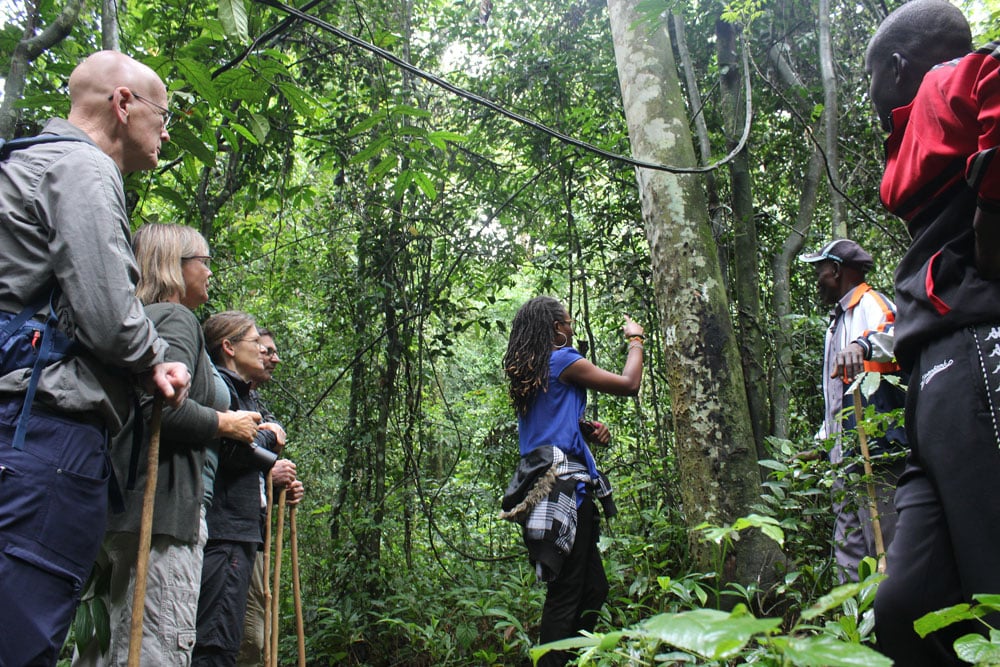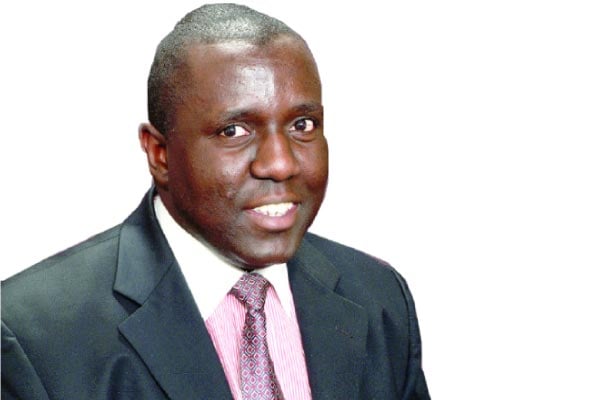Environmentalists alarmed over Uganda's annual forest cover loss

Tourists during a nature walk in Mabira Forest. PHOTO/PAUL MURUNGI
Environmental activists have warned that Ugandans will continue to suffer the severe effects of climate change, including prolonged droughts, unless they embrace environmental conservation measure such as tree planting.
Speaking at the end of a climate change run organized by Tree Adoption Uganda (TAU) in Kampala on Sunday, TAU Executive Director Charles Batte said Ugandans should not simply look on as the country continues to lose 120,000 hectares of forest cover annually.
“This is a problem we have identified to start raising awareness on tree growing. Tree planting is something that must be taken serious by all stakeholders,” Batte said.
He revealed that the organization is mobilizing funds to procure and plant 100,000 trees across the country in efforts to restore the country’s lost forest cover.
According to Uganda Forestry Authority (UFA), the country’s forest cover decreased from 54 per cent in 1900 to 12.4 per cent in 2017, meaning that 2.4 million hectares of forest cover were lost during that period.
The NFA Executive Director Tom Obong recently urged Ugandans to practice agroforestry to save the country from losing all its forest cover by 2040 due to unsustainable human activities that include charcoal burning.
On Sunday, forester Flavia Karungi observed that encroachment on forest reserves such as Bodongo and Bugoma has not only affected rainfall patterns but also negatively impacted tourism.
”Nowadays, there is prolonged drought because trees that help in rainfall formation have been cut down. When you cut down the trees, animals run away and wildlife conservation becomes hard which in turn affects the tourism sector,” Karungi explained.
Former Vision Group manager Robert Kabushenga highlighted that if each Ugandan planted a tree, the country’s forest cover would be increased by 45 million trees.
‘Poor regulation’
While addressing participants during the launch of the Biodiversity Conservation Commitments in Kampala recently, State Minister for Energy, Sidronius Okaasai said poor regulation of charcoal burning and firewood exploitation have greatly contributed to tree cover loss and biological resources of which 60 per cent (72,000hectares is due to charcoal burning and firewood).
He revealed that the energy needs of over 80 per cent Of Ugandans are dependent on biomass which is the burning of renewable energy source generated from burning wood, plants and other organic matter.
But a recent Executive Order by President Museveni headlined as Number 3 of 2023 only imposed a ban on charcoal burning and business in the northern and northeastern Uganda.




